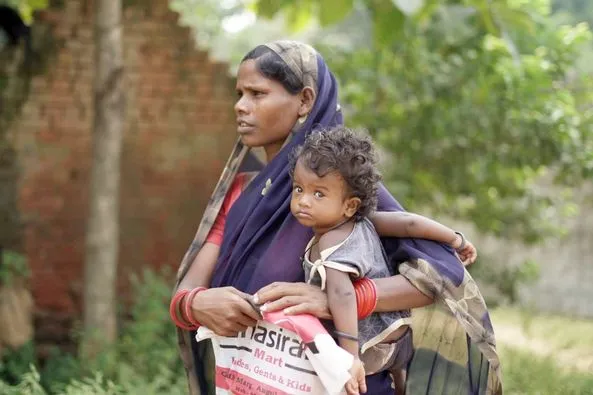In a village in Gujarat’s Bhavnagar, a young 22-year-old mother regularly visits the local healthcare centre for antenatal check-ups. She receives good prenatal support from the medical professionals. During these visits, the experts also monitor her nutritional intake and also prescribe her some supplements as per the need of her body. After a few months, when her son is born, he weighs a healthy 3.2 kilograms and shows no signs of malnutrition or developmental issues. However, thousands or lakhs, of other expecting women in different parts of India do not get the same support as this woman. Many of them are also not aware of the strong link between their health and the health of their child. The link between maternal and child health is critical and it is needed that all the expecting mothers are made aware of the benefits of taking care of themselves during the pregnancy period.
Facts Related to Maternal and Child Health in India
Even today, there are significant disparities across different socio-economic groups and regions in India when it comes to maternal and child health. Here are some of the important points linked to this:
- Maternal Mortality Rate (MMR): India’s MMR stood at 97 per 100,000 live births as of 2018-19. While it is comparatively better in the country, there is still a big gap between the global standards and India’s performance.
- Antenatal Care: It is essential for monitoring and managing pregnancy-related complications. However, only 50% of pregnant women in India receive the recommended four antenatal care visits.
- Institutional Deliveries: There is a progress in ensuring safe deliveries in India as the country has approximately 79% of births occurring in health facilities. However, there is still a large population that needs access to these facilities.
- Infant Mortality Rate (IMR): The IMR in India stood at 25 per 1,000 live births in 2022. Again, there is an improvement as compared to the past but there is still a long way to go in efforts for reducing preventable infant deaths.
Link Between Maternal and Child Health
There are many ways in which maternal health impacts the child’s health. Here are some of the examples-
- Nutrition: If a woman consumes nutritional food at the time of pregnancy, it directly affects the health of her unborn child. At the same time, if a pregnant women suffers from malnutrition, it can lead to her child being born with developmental issues, low weight, etc. Therefore, a nutritional diet is essential for an expecting mother. It can also be ensured through food supplements.
- Prenatal Care: This nutritional deficiency and other complications can be identified and dealt with at an early stage if a woman has access to regular check-ups during pregnancy. Through regular check-ups, healthcare professionals can provide necessary support to the mothers which then leads to a healthy child being born.
- Safe Delivery: One of the most critical stages of pregnancy is childbirth. There can be many complications that might occur during this stage and access to good quality healthcare is extremely crucial to deal with those complications. Therefore, it is needed that women have access to institutional deliveries. Any problems during delivery can have a severe impact on a child’s health with life-long repercussions.
- Postnatal Care: First few weeks after the child is born are critical for both the mother and the baby. Therefore, good quality postnatal care is essential to ensure that the child grows up healthy. At the same time, it is essential that the mother is able to feed the child and is healthy enough to provide care.
Initiatives in India
Several initiatives in India aim to improve maternal and child health. Here are some of the examples:
A number of initiatives by the government involve supporting pregnant women in accessing right support and nutrition. SUMAN (Surakshit Matritva Aashwasan), one such programme by the government, aims to provide quality healthcare to pregnant women and newborns, ensuring safe deliveries and reducing maternal and neonatal mortality. Similarly, Janani Suraksha Yojana (JSY) encourages institutional deliveries by providing financial incentives to pregnant women, particularly those from low-income families.
At the same time, development organisations also play an important role in supporting expecting mothers. Initiatives by them include spreading awareness about prenatal and postnatal care, building infrastructure on the grassroots, providing medical support, etc. Smile Foundation also works to improve maternal and child health through various programmes. Our mobile health clinics provide essential healthcare services to pregnant women and children in remote areas, ensuring access to care for underserved communities. Smile Foundation also collaborates with ASHAs (Accredited Social Health Activists) and Anganwadi workers to promote health education and support for mothers and children.
Conclusion
The link between maternal and child health is critical and if India wants to reduce its burden of providing medical care to children who are born with deficiencies, it needs to focus on eliminating the root of the problem. By providing necessary support to women during pregnancy, the country can ensure healthy and safe childbirths. Healthy children in turn can grow up to become self-sufficient and contribute to the nation’s economy and growth in various ways. Therefore, the government, private sector and development organisations need to work together in ensuring maternal health.



